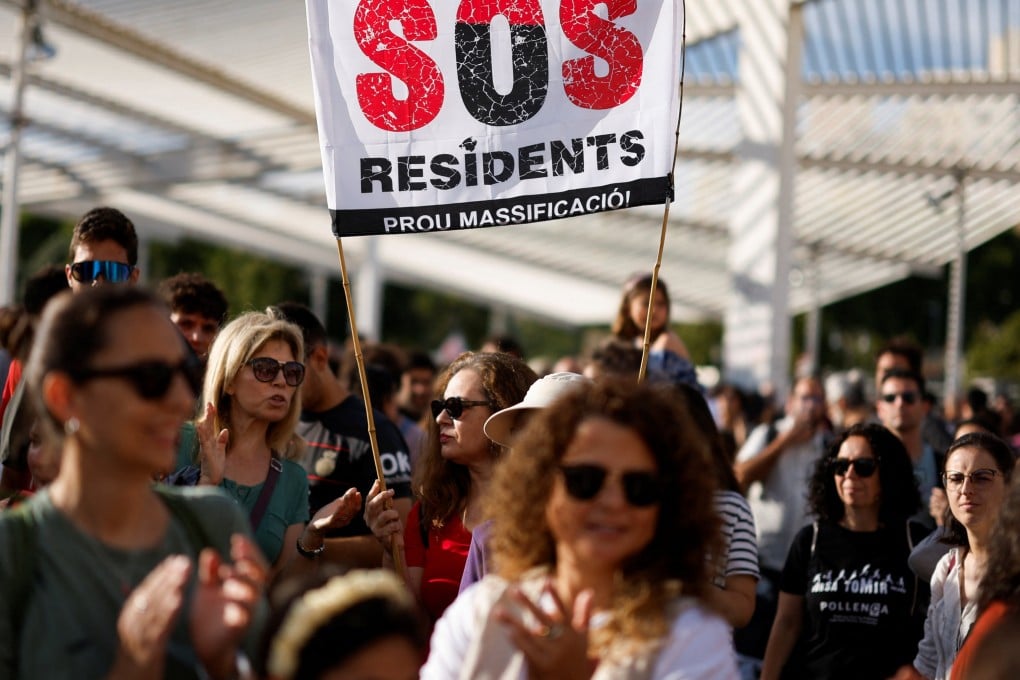Overtourism in Spain: residents have had enough, as protests erupt in Mallorca, Ibiza and the Canary Islands
- Thousands marched through Palma de Mallorca, the capital of the largest of the Balearic Islands, in Spain’s latest protest against mass tourism
- ‘We want more sustainable tourism,’ a march organiser said. They seek better control of short-term holiday rentals that price locals out of the property market

Thousands of people have staged a protest in Spain’s Balearic Islands against mass tourism ahead of the summer season.
About 10,000 demonstrators took part, a Spanish National police spokesman said, although organisers claim the number was 25,000. The demonstrators included many families with children, students and retired people as well as members of trade unions, and environmental and other citizen groups.
A smaller protest, with a few hundred people, was staged in Menorca, the second largest of the four main Balearic Islands.

“We want the authorities to stop people who have not lived here more than five years from buying properties and to put more controls on holiday accommodation,” said Carme Reines, from a collective which organised the protest in Palma de Mallorca.
Javier Carbonell, a property agent, said more than half of rental properties were used for holiday rents and were not affordable for locals. “We want less mass tourism and more sustainable tourism,” Carbonell said.